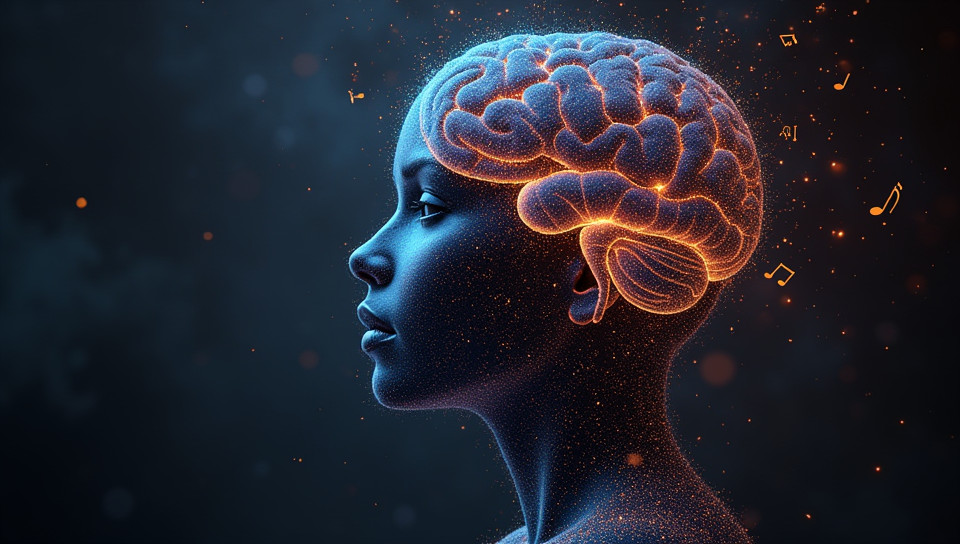Most music cognition research focuses on individual differences 55%

The Uncharted Territory of Group Dynamics: A Call to Action for Music Cognition Research
Have you ever found yourself swaying to the rhythm in a crowded concert, only to notice that your friend is tapping their feet to an entirely different beat? This phenomenon highlights a fascinating aspect of music cognition research – individual differences. While most studies focus on how our brains process and respond to music, there's a significant gap in understanding how group dynamics influence our musical experiences.
The Dominant Paradigm: Individual Differences
The majority of music cognition research has concentrated on identifying the unique characteristics that shape an individual's perception, emotion, and behavior when it comes to music. This focus is not surprising, given the intricate complexities of human brain function and the variability in cognitive styles. Researchers have made significant progress in understanding how factors such as personality traits, emotional intelligence, and musical expertise contribute to our individual experiences with music.
The Overlooked Aspect: Group Dynamics
However, by prioritizing individual differences, researchers may be overlooking a crucial aspect of music cognition – group dynamics. When we engage with music in a social setting, our experiences are shaped not only by our personal characteristics but also by the interactions and influences of those around us. This collective aspect of music consumption has profound implications for how we perceive, process, and respond to music.
The Consequences of Ignoring Group Dynamics
The neglect of group dynamics in music cognition research can have far-reaching consequences:
- Music therapy programs may not effectively address the needs of patients with social anxiety or autism spectrum disorder
- Music education curricula might overlook the importance of collaborative learning and social skills development
- Musical experiences in public spaces, such as concerts and festivals, could be designed to prioritize individual enjoyment over collective engagement
A Call to Action: Exploring Group Dynamics in Music Cognition Research
It's time for researchers to shift their focus towards understanding how group dynamics influence our musical experiences. By exploring this uncharted territory, we can gain a deeper appreciation for the complex interplay between individual and collective factors that shape our relationships with music.
Conclusion
The significance of group dynamics in music cognition research cannot be overstated. As researchers, we have a responsibility to acknowledge the limitations of our current understanding and strive for a more comprehensive approach. By exploring this underrepresented aspect of music cognition, we can develop more effective interventions, improve musical experiences, and shed new light on the intricate relationships between individuals and groups in the realm of music.
- Created by: William Rogers
- Created at: Nov. 15, 2024, 1:57 p.m.
- ID: 15997









